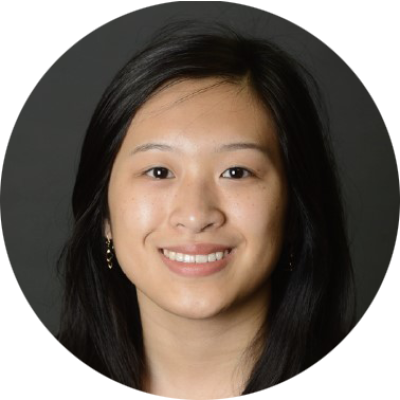
Kim L. Phan
For the duration of the DDP [Johns Hopkins University Doctoral Diversity Program], I am conducting research full-time in Dr. Sandra Gabelli’s lab, where one of my projects involves studying NUDIX hydrolases, a superfamily of enzymes known for their ability to remove mutagenic nucleotides from the nucleotide pool. They are named after their shared ability to catalyze the hydrolysis of nucleoside diphosphate linked to a moiety X, hence the name NUDIX. Many NUDIX hydrolases have cellular roles ranging from the degradation of mRNA and processing of ADP-ribosylation to the removal of mutagenic nucleotides from the nucleotide pool. Though a highly conserved signature motif of 23 amino acids, GN1[5X]EN7[7X]RN15EN16XXEN19EN20XGN22U, known as the NUDIX signature sequence, allows us to identify these enzymes, more information is necessary to classify these enzymes into families.
Previously, the NUDIX family represented by NudI was identified to be nucleoside triphosphatases with a preference for pyrimidine deoxynucleoside triphosphates. Recent studies have shown that NudI preferentially hydrolyzes geranyl pyrophosphate [GPP] instead of a nucleoside containing metabolite. I am characterizing an atypical NUDIX family, represented by NudI whose preferred substrate, geranyl pyrophosphate, lacks a nucleotide in comparison to the archetypical substrate. Using the conformational changes that NUDIX enzymes undergo upon substrate binding, product release and inhibitor binding will allow me to establish the rules of recognition. The characterization of NudI as a hydrolase of GPP, with its structural determinants of specificity and inhibition, is a step toward identifying the pathway it is involved in and establishing the rules for classifying NUDIX enzymes into families.
Questions & Answers
Why did you choose Johns Hopkins for your work? Since my undergraduate institution did not have many biomedical research opportunities and physician-scientist mentors, I sought out programs that would advance my research skills to prepare me for physician-scientist training. Thus, I joined the Johns Hopkins University Doctoral Diversity Program [DDP] and chose Dr. Sandra Gabelli’s lab after becoming captivated by the chance to learn how therapeutics are designed. I was enamored by the idea of being able to visualize a protein and characterize how allosteric binding can drastically alter structure and function. As an aspiring physician-scientist, I want to understand the mechanisms of therapeutics, learn the process of their design, and contribute to their creation and use. What does receiving this award mean to you personally and professionally? Do you have any connection with the particular award you received? My time in the DDP has been a pivotal moment in my academic career — I went into this post-baccalaureate research experience hoping to continue exploring the pathway of science. I remember being amazed at all the outstanding research being done at Hopkins when I first arrived here. I was excited for all the opportunities that were now available to me. Receiving this award as I wrap up my time here at Hopkins is truly meaningful to me. The award gives me a sense of accomplishment as I prepare myself for the next chapter of my life as an M.D./Ph.D. student. What contributed to your project’s success? (Special skills, interests, opportunities, guidance, etc.) My project’s success would not be possible without the tremendous support and guidance — and amazing homemade foods and desserts — from my PI, Dr. Sandra Gabelli. I feel very lucky to have such a great mentor whose enthusiasm constantly motivates me and inspires me to continue pursuing research. I came into this program with no experience in structural biology, but with Dr. Gabelli’s mentorship, I have since become proficient in it. In the process, I have not only learned how to crystallize proteins, trace electron density maps and refine protein structures, but have also learned to present my work to different audiences. I am grateful for the opportunities to work on my writing skills through manuscripts. I am also grateful toward all the members of the Gabelli lab, and especially, Dr. Katharine Wright, a postdoctoral fellow. They have taught me a lot and are always there for support — they have been pivotal to my successes. I am thankful to Drs. Douglas Robinson and Dr. Deidra Crews, director of the Doctoral Diversity Program, for giving me this wonderful opportunity to be here and for their encouragements (and food and coffee!) during our monthly coffee breaks. What thoughts do you have about Young Investigators’ Day itself, as a celebration of the roles students and fellows play in research at Hopkins? I think that Young Investigators’ Day is a fantastic opportunity for young trainees like myself to showcase their work to a wide audience and feel appreciated by our institution. It is exciting to see the program bringing together trainees from different levels and fields and to highlight their hard work. What has been your best/most memorable experience while at Hopkins? My most memorable experience while at Hopkins was the opportunity to go in person to the Brookhaven National Laboratory to collect data on my NudI crystals at the National Synchrotron Light Source II until 2:30 in the morning with my PI. I also rode a tricycle for the first time at the facilities there! What are your plans over the next year or so? Graduating, looking for faculty positions, etc.? Starting in August, I will be continuing my journey toward becoming a physician-scientist at the Medical Scientist Training Program at the University of Wisconsin School of Medicine and Public Health. Tell me something interesting about yourself that makes you unique. Do you have any special hobbies, interests or life experiences? I am proud to be a first-generation college student and soon to be a first-generation medical/graduate student! I have also been doing judo since high school and currently possess a brown belt — ikkyu. I even continued doing judo while studying abroad in Japan during undergrad. Doing judo has given me more than just the ability to throw people twice my size. It has improved my self-confidence and taught me to never give up.